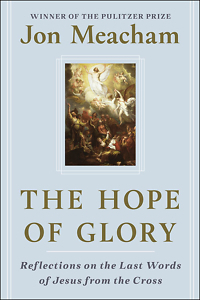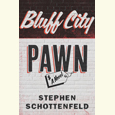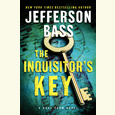Hope Springs Eternal
Pulitzer Prize-winning biographer Jon Meacham examines the last words of Jesus
Stripped of the acknowledgments, notes, and bibliography, Jon Meacham’s The Hope of Glory: Reflections on the Last Words of Jesus from the Cross is just shy of 100 pages. Into this slim volume the Pulitzer Prize winner has packed a series of personal essays inspired by the last words of Jesus as recorded in the Gospels, the words reportedly spoken as he suffered on the cross. These seven lines inspire Meacham to reflect on the life of Jesus, the meaning of the crucifixion, and the impact of faith on his own life.

Meacham, a Tennessee native best known for works of history, has created something quite different with The Hope of Glory. “It is a devotional work,” he writes, “not a scholarly one.” While his disclaimer is true in the strictest sense, the author of presidential biographies such as Destiny and Power and American Lion cannot resist the tug of history, quoting everyone from Homer to Albert Schweitzer, Saint Augustine to Benjamin Franklin.
Declaring that the book is not evangelical and he has no desire to impose his Christian faith on others, he quotes Thomas Jefferson, who famously said, “It does me no injury for my neighbor to say there are twenty gods, or no god. It neither picks my pocket nor breaks my leg.” In that spirit of tolerance, Meacham writes that he hopes to “help readers make more sense of the cross in a world too much given to the competing forces of hostile skepticism, blind acceptance, or remote indifference.”
In considering the final worldly words of the Nazarene, Meacham explores the moment when the historical figure of Jesus became the Christ of theology. Those seven final lines range from “Father forgive them; for they know not what they do” to “Father, into thy hands I commend my spirit.” The statements can be taken both literally and figuratively, and Meacham examines them in the context of the times in which they were written and the motivation of the authors of the Gospels. Such examination invites nothing less than a meditation on the origins of Christianity — a religion, he writes, that began “with confusion, not clarity; with mystery, not with certainty.”
 Meacham does not shrink from that uncertainty; he boldly explores it in the context of his own open-minded faith. Jesus’ statement “It is finished,” for example, is considered in the light of both that single moment of agony and what came later. The sentence may, Meacham explains, refer to the finality of crucifixion, the accomplishment of a mission, or the end of suffering. Seeking out other meanings leads him to reflect on Christian views of salvation and damnation.
Meacham does not shrink from that uncertainty; he boldly explores it in the context of his own open-minded faith. Jesus’ statement “It is finished,” for example, is considered in the light of both that single moment of agony and what came later. The sentence may, Meacham explains, refer to the finality of crucifixion, the accomplishment of a mission, or the end of suffering. Seeking out other meanings leads him to reflect on Christian views of salvation and damnation.
The book’s title is taken from Colossians 1:27, which declares the presence of Jesus within everyone, and Meacham clearly believes that the yearning for grace and glory resides in all of us. But there are also political undertones in this collection. In previous books, he has reflected on the role of religion in the founding of the republic (American Gospel) and the importance of rejecting fear and embracing hope (The Soul of America). In both of those books, hope for a better world is a central theme.
The Hope of Glory may therefore be viewed as a companion to Meacham’s historical works, an explanation of how his personal views on religion have informed his other work. He offers no answer to the ultimate question of “Why?” He offers instead his own sustaining trust in faith: “For that hope is all we have to hold on to, however tenuously, in the hours when we, too, feel forsaken by the Father, and far from his care.”

A Michigan native, Chris Scott is an unrepentant Yankee who arrived in Nashville more than 30 years ago and has gradually adapted to Southern ways. He is a geologist by profession and an historian by avocation.


